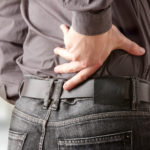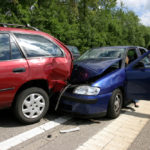Temporomandibular Joint Pain After a Car Accident
Your temporomandibular joint (TMJ) is the lower jaw joint that attaches to your skull next to each ear. It’s a hinge joint, and we use it to chew, talk, laugh, or yawn. We even use it when we brush our teeth. On average, the TMJ is used more than 2,000 times a day. It’s the most frequently used joint of the body. When it’s used, it works in conjunction with certain muscles. Some of those are the temporalis, pterygoid, and masseter muscles. Here are answers to some common questions about TMJ.
Can TMJ disorders result from car accidents?
Nearly everybody who is involved in a motor vehicle accident suffers some type of a whiplash injury. When the victim’s head is whipped in any direction, severe forces are thrust on their TMJ and lower jaw. For example, in a rear-end impact, the vehicle that the victim is in gets pushed forward while at the same time, his or her head is whipped backward. The opposite movements occur in a front-end impact. For a second or two, the jaw is forced open while great stress is forced on the TMJ muscles. In a side impact, the jaw is thrown from side to side. A whiplash of the neck and head isn’t the only cause of TMJ injuries in auto accidents. Blunt trauma to the jaw or head can also be a cause.
What are the symptoms of TMJ disorders?
The victim of a motor vehicle collision who has suffered a TMJ injury might experience some of the following symptoms:
- Earaches and pain around an ear
- Facial pain
- Painful clicking or snapping of the jaw with limited range of motion
- Difficulty opening the jaw due to locking
Based on these symptoms, the use of X-rays, computerized tomography or magnetic resonance imaging might help determine the exact nature and extent of the condition.
What are the types of TMJ injuries
According to the National Institute of Dental and Crainiofacial Research, there are three typical classifications of TMJ injuries. Those are:
- Myofascial pain from the temporalis, pterygoid, and masseter muscles
- Internal displacement of the disc between the lower jaw and skull
- Degenerative arthritic joint disorders
A victim might experience one or more of these conditions after being involved in a motor vehicle collision.
What are the treatment options?
Like a whiplash injury, a TMJ injury should resolve over time with conservative treatment. That might involve use of ibuprofen for jaw and muscle pain, eating soft foods, massage, stretching exercises and avoiding excessive chewing. If the condition doesn’t resolve with conservative therapy at home, dental or orthodontic treatment could be in order. That’s when it’s time to see a qualified dentist or an orthodontist. With more serious TMJ injuries, arthroscopic outpatient surgery with recovery time of about a week might be required. In a small minority of severe TMJ injuries, a hospital admission and surgical joint replacement could be necessary.
A TMJ injury might not manifest itself immediately after a car accident. Without direct trauma, it might be ignored by both the injured person and the opposing insurer until such time as all other injuries have resolved, and the TMJ condition persists. Along with an skilled car accident lawyer Memphis TN relies on who understands the mechanics of a TMJ injury, a dental professional who can diagnose and treat the injury is critical to bringing and proving a TMJ injury claim in any court of law.
Thanks to our friends and contributors from Patterson Bray for their insight into auto accident cases.



